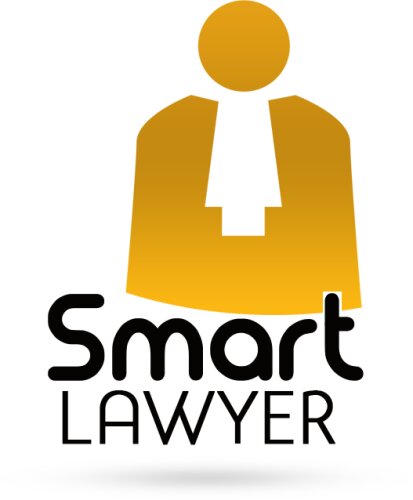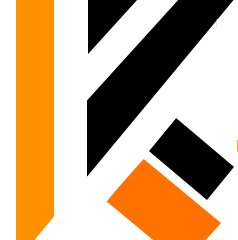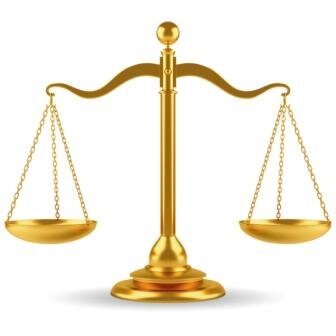Best Restructuring & Insolvency Lawyers in DR Congo
Share your needs with us, get contacted by law firms.
Free. Takes 2 min.
Or refine your search by selecting a city:
List of the best lawyers in DR Congo
About Restructuring & Insolvency Law in DR Congo
Restructuring and insolvency law in the Democratic Republic of Congo (DRC) provides the framework for resolving situations where businesses and individuals are unable to meet their financial obligations. The purpose of these laws is to offer fair procedures for dealing with insolvency, protect creditors' rights, safeguard business value where possible, and, if necessary, oversee the liquidation of assets. In the DRC, restructuring and insolvency are governed mainly by the Organisation for the Harmonisation of Business Law in Africa (OHADA) Uniform Act on Collective Proceedings for Wiping Off Debts (often referred to as the "OHADA Insolvency Act"). This legal regime has integrated and harmonised insolvency rules across member states, including the DRC, to create more predictable and transparent outcomes for debtors and creditors alike.
Why You May Need a Lawyer
Legal matters involving restructuring or insolvency are often complex and involve significant financial and legal consequences. You may need a lawyer with experience in this field if you find yourself in any of the following situations:
- Your business is faced with mounting debts and cannot pay its creditors.
- You are a creditor seeking to recover monies owed by an insolvent debtor.
- You are considering entering a voluntary restructuring arrangement with creditors.
- Your company is threatened by insolvency proceedings or has received notice of such proceedings.
- You require guidance on asset protection or directors’ liabilities during insolvency.
- You need advice about negotiating standstill or repayment agreements.
- Your concern is about the continuation of business operations during financial distress.
- You want to understand the legal implications of bankruptcy filings.
Lawyers can provide critical legal advice, represent you in negotiations or court, and ensure compliance with both domestic and OHADA legal requirements, thereby maximizing the chances of a favorable outcome.
Local Laws Overview
Restructuring and insolvency procedures in the DRC are primarily governed by the OHADA Insolvency Act, applicable throughout Francophone Africa. Here are key legal aspects:
- Types of Proceedings: There are three main procedures: preventive settlement (règlement préventif), legal redress (redressement judiciaire), and liquidation of assets (liquidation des biens). Each procedure serves different purposes and has its own requirements.
- Commencement of Proceedings: Proceedings can be initiated by the debtor, creditors, or the public prosecutor, depending on the circumstances.
- Role of the Court: Insolvency cases are handled by the competent commercial court, which appoints judicial representatives such as administrators or liquidators.
- Stakeholder Representation: Creditors may group together to influence proceedings and defend their interests collectively.
- Management of the Debtor’s Assets: Upon the commencement of certain proceedings, the management of the business may pass to a court-appointed administrator or remain under the supervision of the court.
- Effects on Contracts: Pending contracts may be suspended or terminated depending on their type and the stage of proceedings.
- Employee Rights: Employees have priority claims in case of liquidation and are accorded certain protections under Congolese labor laws.
Understanding these legal frameworks is essential, as missteps or failure to act can have significant financial and legal repercussions.
Frequently Asked Questions
What is the difference between restructuring and insolvency in DR Congo?
Restructuring refers to measures taken by a financially distressed company to reorganize its debts and operations to avoid insolvency, often under preventive settlement procedures. Insolvency, on the other hand, occurs when an individual or business can no longer pay its debts as they fall due, leading to judicial redress or liquidation.
Who can initiate insolvency proceedings?
Insolvency proceedings can be initiated by the debtor who recognizes their insolvency, by any creditor owed money, or by the public prosecutor under specific circumstances.
What protections exist for creditors in Congolese insolvency law?
Creditors can present claims, participate in creditors' meetings, and may have their interests represented by court-appointed representatives. Secured and employee creditors have priority during the distribution of assets.
How does the court decide which proceeding is appropriate?
The court assesses the financial health of the debtor, the probability of business recovery, and the interests of creditors before determining whether preventive settlement, redress, or liquidation is more suitable.
What happens to employees if a company goes into liquidation?
Employees are generally entitled to preferential treatment regarding the payment of their claims, such as unpaid wages, during the distribution of assets.
Are directors or managers liable for company debts?
While company directors are generally protected by the principle of limited liability, they may be held personally liable if there is evidence of wrongful trading, fraud, or gross mismanagement.
Can a company continue to operate during restructuring or insolvency?
In many cases, especially under judicial redress or preventive settlement, the company may continue to operate under court or administrator supervision. The goal is to preserve business value and jobs where viable.
How long do insolvency proceedings typically take in the DRC?
The duration depends on the complexity of the case, the chosen procedure, and the cooperation of all parties. Proceedings can take several months to several years.
Are foreign creditors able to participate in Congolese insolvency proceedings?
Yes, foreign creditors can file claims and participate, especially under the uniform OHADA system, which has provisions for cross-border insolvency situations.
What should I do if I receive a notice of insolvency proceedings?
You should consult a qualified lawyer immediately to understand your rights, obligations, and the options available for defending your interests or negotiating with creditors.
Additional Resources
If you need further information or guidance, the following resources and institutions can be valuable:
- Commercial Courts (Tribunal de Commerce): The courts are the competent authorities for insolvency and restructuring cases in the DRC.
- National Chamber of Notaries: A key resource for information on asset registration and related legal documentation.
- OHADA Regional Website: Offers information on uniform laws and proceedings applicable in the DRC.
- Ministry of Justice (Ministère de la Justice): The ministry provides oversight and public guidance on legal reforms and judicial processes.
- Local Bar Associations: Can help you find licensed restructuring and insolvency lawyers in your area.
Next Steps
If you are facing financial distress, are being threatened with or are contemplating insolvency proceedings, or want to safeguard your interests as a creditor, taking the following steps is recommended:
- Gather all relevant financial documents, including debts, contracts, and communications with creditors.
- Consult a qualified lawyer who specializes in restructuring and insolvency law in the DRC to get a professional assessment tailored to your situation.
- Act quickly preserving your rights and options is often time sensitive in insolvency matters.
- Request a formal evaluation of possible solutions, such as restructuring, negotiation with creditors, or formal proceedings.
- Stay informed about your obligations as a debtor or creditor during the process to avoid legal pitfalls.
Whether you are an individual, an entrepreneur, or a representative of a company, seeking timely and informed legal guidance is essential to achieving the best possible outcome in restructuring and insolvency matters in DR Congo.
Lawzana helps you find the best lawyers and law firms in DR Congo through a curated and pre-screened list of qualified legal professionals. Our platform offers rankings and detailed profiles of attorneys and law firms, allowing you to compare based on practice areas, including Restructuring & Insolvency, experience, and client feedback.
Each profile includes a description of the firm's areas of practice, client reviews, team members and partners, year of establishment, spoken languages, office locations, contact information, social media presence, and any published articles or resources. Most firms on our platform speak English and are experienced in both local and international legal matters.
Get a quote from top-rated law firms in DR Congo — quickly, securely, and without unnecessary hassle.
Disclaimer:
The information provided on this page is for general informational purposes only and does not constitute legal advice. While we strive to ensure the accuracy and relevance of the content, legal information may change over time, and interpretations of the law can vary. You should always consult with a qualified legal professional for advice specific to your situation.
We disclaim all liability for actions taken or not taken based on the content of this page. If you believe any information is incorrect or outdated, please contact us, and we will review and update it where appropriate.
Browse restructuring & insolvency law firms by city in DR Congo
Refine your search by selecting a city.














